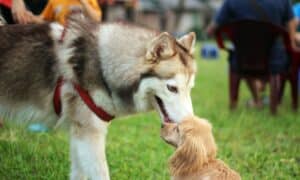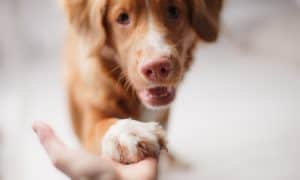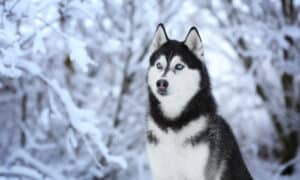“This post contains affiliate links, and I will be compensated if you make a purchase after clicking on my links.”
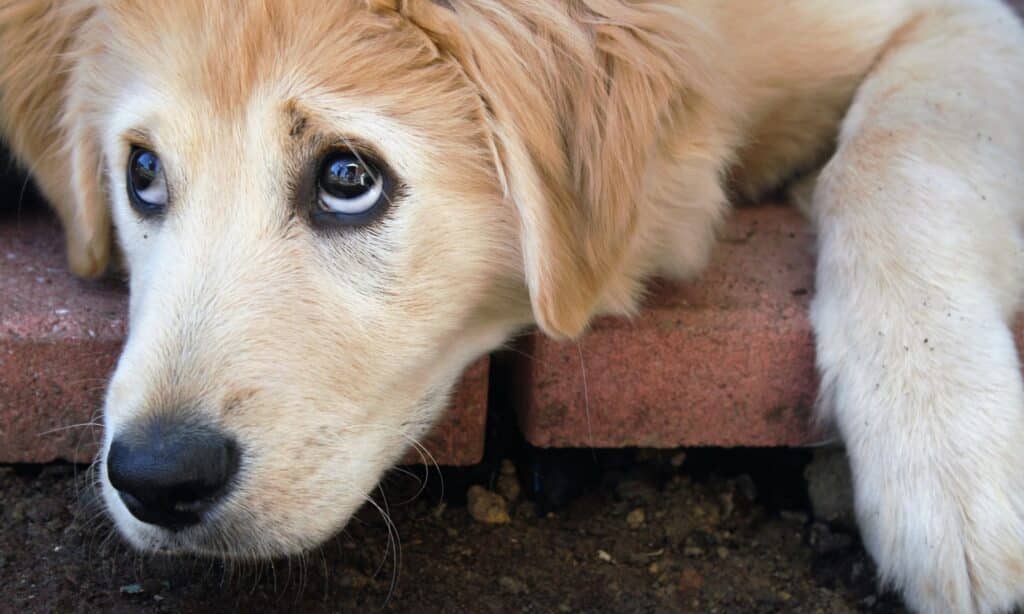
Assume your dog notices a child. Your dog may turn away from the kid, but he will keep his gaze fixed on the child to see what happens. This gesture is the canine equivalent of the side-eye.
The dog will slightly avert his head, but his gaze will remain locked on something or someone. His eye whites will form a half-moon shape, generally on the inner or outer side of the eye, but sometimes all around. And this gesture is also known as “half-moon eye.”
Dog trainers use the term “dog whale eye” to describe a dog’s body language when the whites of his eyes (the sclera) are exposed.
The whale eye is commonly seen in nervous dogs. Canines move their heads away to signal that they do not pose a threat.
A dog’s eye is an appeasement gesture. And a dog with a true whale eye will usually show some other signs of stress as well. Appeasement actions such as lip-licking or avoiding eye contact may also be observed. The dog’s hair may stand up along his spine. And he may also snarl a warning or freeze in place.
When a dog exhibits whale eye, he is hoping you will notice and understand the message he is giving. He expects you to take steps to fix whatever is wrong. If you can identify the problem, this is always the best course of action.
How To Deal With Dog Whale Eye
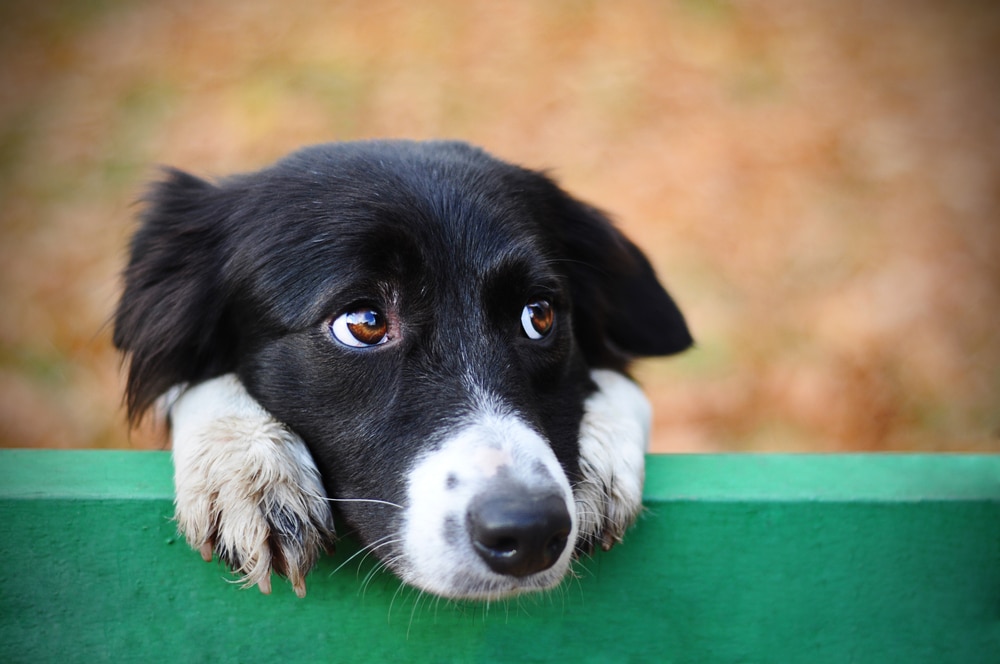
If you see your dog has a whale eye, the first thing you should do is figure out what caused it. Is your dog scared because he saw another dog? Is there any yelling?
Once you’ve figured it out, remove the trigger and assist your dog in redirecting his focus to something he enjoys. If another dog approaches you in a public place and gives you the whale eye, move your dog away.
However, whale eye in dogs is not always a sign of an unpleasant mood. It can sometimes suggest playfulness or excitement.
For example, if your dog is holding a toy and looks up at you without moving his head, he will have a lot of white around his eyes. That could be an indication that he wants you to play with him.
It all depends on the situation and what else your dog is saying through his body language, which is how dogs communicate the most. Learning how to interpret dog cues is vital if you want to know what your dog is feeling or thinking.


